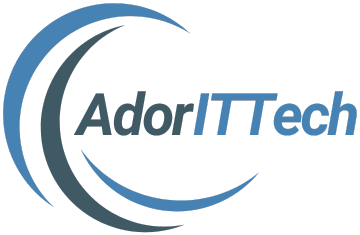Artificial intelligence (AI) is growing faster than ever, making its entry in every field imaginable—from the fields of health and finance to automation and amusement. This steep advancement has asked an age-old question: AI vs Humans—is humanity going to rule the world, or AI going to override intelligence and own work, innovation, and making choices?
AI is already revolutionizing industries, streamlining processes, and making life easier. From AI-based virtual assistants such as Siri and Alexa to autonomous vehicles, AI is increasingly able to do sophisticated things that were previously the sole preserve of human intellect. But humans have emotions, consciousness, flexibility, and ethical thinking, so the AI vs Humans debate becomes even more interesting.
In this blog, we will discuss the contrasts between AI Vs Humans, the weaknesses and strengths of both, the sectors where human jobs are being taken over by AI, and whether AI can surpass human intelligence in the future or not.
Understanding AI VS Human Intelligence
What is AI?
With learning and reasoning algorithms able to take in data and make decisions, artificial intelligence (AI) refers to robots that are modeled after human intelligence. The performance of AI systems based on machine learning (ML), deep learning (DL), and neural networks keeps getting better through time. AI can analyze silos of data, spot patterns, and predict outcomes with remarkable accuracy.
A few typical examples of AI are:
- Bots such as ChatGPT and Siri that comprehend and respond to human questions in real time.
- Self-driving cars that employ AI to drive on roads, identify obstacles, and make driving choices.
- Computerized medical diagnostic equipment that identifies illnesses quicker and more effectively than human physicians.
- Artificial intelligence robots utilized in factories to mechanize manufacturing processes, lowering human labor and mistakes.
What Makes Humans Unique?
AI relies on data rather than October 2023. Extreme processing of information is AI’s strong point but is profoundly weighed down by the rest of the human gift-however, in this regard, people bring emotions, intuition, creativity, and ethical reasoning to the game. Driven by consciousness and experience, human intelligence provides the basis for consciousness, moral reasoning, and situational adaptability.
There are emotions, human interaction, and social understanding which humans possess but AI is incapable of that. AI can create art and music just based on data patterns, and technically that could be considered creativity. Yet human creativity, with emotion behind it, has surpassed that kind of AI creativity. Humans learn through experiences rather than just feeding on data that makes them adaptable to variable situations.
Strengths of AI vs Humans
Advantages of AI
- Speed and Efficiency
The AI is capable of processing gigantic amounts of data in seconds, while it would take humans years. In the financial markets, AI trading bots execute trades in milliseconds, way too quick for any human investor. The quick analysis of complex datasets gives an edge to AI in some industries where decision-making involves speed.
- Automation of Repetitive Tasks
AI relieves human beings of work in data entry, customer service, and assembly operations, which gives rise to better efficiency and reduced labor costs. AI systems work adequately in the performance of repetitive or ordinary tasks that require no human intelligence, giving businesses time and resources.
- Accuracy and Precision
Since AI errors are less than human errors, their employment in medicine, engineering, and scientific investigation is justified. AI-powered surgeries, for example, mitigate risks of human errors on intricate medical procedures to yield better patient outcomes.
- Availability and Scalability
AI does not require rest as humans do. AI chatbots perform customer service activities round the clock, whereas AI-powered security systems monitor for cybersecurity threats 24 hours a day, thus making them a reliable choice for tasks requiring unrelenting attention.
Advantages of Humans
- Creativity and Innovation
For the greatest part, AIs analyze data; they do not think creatively or give rise to genuinely original ideas. Humans create innovations, which are the basis of progress in science, technology, and the arts. AI is a support mechanism for creative activities, but human intelligence is still at the center of innovation.
- Emotional Intelligence
The AI feels neither the subtle shades of emotion nor the kernels of human psychology. Humans empathize, relate, and forge emotional connections, bringing these very advantages to the table in counseling, leadership, and realms of healthcare where emotional intelligence counts.
- Ethical Decision-Making
AI algorithms run per preset rules and have no moral sense of their own. When humans weigh decisions, they often consider ethics and morality as the touchstones of fairness within fields such as law, medicine, and governance. It is, and will always be, a human who determines the ethical question in the end, since ethics are the realm of humans alone.
- Adaptability and Intuition
AI is conditioned to learn from structured data, whereas humans learn from experience and thus adapt to unpredictable scenarios, rendering them better problem-solvers compared to AI in dynamic environments. Humans apply common sense while dealing with situations for which AI might not have been trained.
Industries Where AI is Replacing Humans
1. Healthcare in AI VS Humans
AI is making a rapid change in the healthcare sector, whereby it assists doctors in the diagnosis of diseases, the analysis of medical records, and even the conduct of robotic surgeries. AI tools such as IBM Watson can detect diseases more rapidly than human doctors. Nonetheless, no AI can replace doctors and nurses because healthcare is about human feelings, trust, and ethical choices.
2. Manufacturing in AI VS Humans
At factories, robots controlled by AI replace their human counterparts in the speed of assembling and delivering products. Organizations like Tesla and Amazon deal with warehouses filled with all types of automation powered by artificial intelligence to lessen the physical load of human workers. However, human intervention is still needed for quality park checks and resolving unforeseen problems.
3. Customer Service
While chatbots and virtual assistants are capable of answering basic customer inquiries, thereby removing the need for a human representative, complex customer issues still require the problem-solving skills of a human as well as an element of emotional intelligence, which is lacking with AI, since the latter cannot comprehend serious emotional concerns.
4. Finance and Banking
Algorithms for AI are used for analyzing trends in the stock market, detecting fraudulent transactions, and automating investment decisions. If AI is making operations in banking so much faster and easier, typical human financial advisors are key to strategic decision-making and risk assessment. AI works wonders when it comes to crunching numbers; however, the human aspect comes into play when it comes to providing context and long-running strategies.
5. Transportation and Logistics
AI-enabled logistics systems and self-driving cars reduce indirect human effort in the actual transportation of goods by optimizing delivery routes. Human drivers can still get involved in unpredictable situations. AI mainly helps with efficiency; however, humans are still essential for decision-making and control.
The Future: AI and Humans Working Together
Humans will not be replaced in the near future by AI, but rather, there will be a tie-up between the two where both can harness the potential of each: AI would thus help in terms of computerization and data analysis, such as repetitive tasks, while by definition it would offer things like creativity, ethics, and leadership to people.
- Augmented Intelligence – AI will not replace humans but will become their capabilities. A computer will help the doctor make health diagnoses, but a human will always have the leading role in making medical decisions.
- Opportunity for New Employment – AI will bring new jobs in developing AI, cybersecurity, and data science, thereby increasing employment and not decreasing it.
- Ethical AI Development – In those places where AI could turn lethal, AI was tested, but humans made sure that it remains ethical, unbiased, and beneficial to society. Human intervention will always be needed with every AI decision.
As AI advances, communication will involve humans more closely than before in creativity, ethics, and emotional intelligence to ensure that AI is enhancement rather than replacement.
Conclusion
The AI vs Humans argument is about how AI and humans can work together to form a future that is much smarter and even more efficient. AI may surpass people in automation, speed, and precision, but they are not so good at creativity, emotions, ethics, and adaptability.
While the most important changes that AI can bring in already established industries will apply less to repetitive tasks, human intelligence, leadership, and moral reasoning will be irreplaceable. The future will not be about AI replacing us but instead about what we can do together with their capability towards a better world.
FAQ’s
1. Will AI someday overtake human intelligence?
AI can analyze data, but it is not creative, does not have emotions, and it cannot judge from ethics, so it is unlikely to replace humans completely.
2. Will AI take the place of creative jobs?
AI can create content, but real creativity and originality are strictly within the confines of human thought and emotion that cannot be copied by AI.


